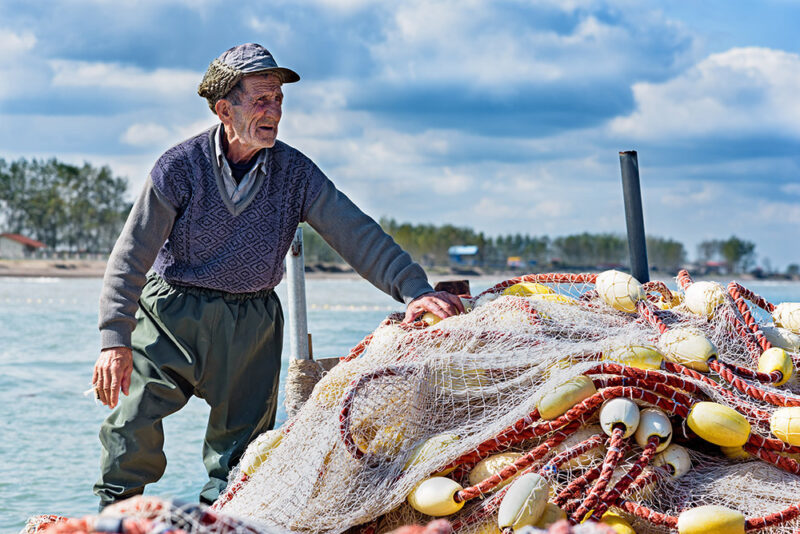Ocean Action Agenda aims for net gains globally
Seafood – both farmed and wild – will play a central and increasingly important role in realizing human, ocean and planetary health.
By Fabian Dawson
SeaWestNews
Canada’s fishers and seafood farmers say they support a global initiative led by 14 world leaders to build a sustainable ocean economy that can help solve global challenges like climate change and food security.
The new Ocean Action Agenda released by the High Level Panel for a Sustainable Ocean Economy (Ocean Panel) this week has put forward a new action agenda underpinned by sustainably managing 100 per cent of national waters.
The Ocean Panel, comprising the leaders of Australia, Canada, Chile, Fiji, Ghana, Indonesia, Jamaica, Japan, Kenya, Mexico, Namibia, Norway, Palau, and Portugal have also pledged to sustainably manage waters under their control by 2025 – oceans covering about 30 million square kilometers.
The measures aimed at building a sustainable ocean economy could help produce as much as six times more food from the ocean that is in line with Canada’s Blue Economy vision, which includes protecting 30 per cent of marine waters by 2030, rebuilding fish stocks, reducing plastic in the ocean.
“Having the world’s longest coastline, Canada recognizes that our economy and our well-being are deeply connected with the health of our oceans, and that we have a responsibility to protect them,” Prime Minister Justin Trudeau said in a statement.
“That is why we are committed to working with our international Ocean Panel leaders, and to developing a comprehensive blue economy strategy. We are also calling on more world leaders and other partners to join us in turning our goals into reality.”
The Fisheries Council of Canada (FCC) and the Canadian Aquaculture Industry Alliance (CAIA) said the mission of building a sustainable ocean economy by balancing effective protection, sustainable production and equitable prosperity is in alignment with the goals of the Canadian fish and seafood industry.
“The Ocean Action Agenda and Canada’s Blue Economy Strategy 2040 demonstrate that we don’t have to choose between ocean protection and production. We can have both. Research shows that a healthier ocean is a smart investment that will deliver social, health, economic and environmental benefits,” the two groups said in a joint statement.
The FCC and CAIA, the national associations representing the wild-capture and farmed seafood industries recently released their own Blue Economy Strategy, which is to position Canada as a global top three producer of the best, most sustainable fish and seafood by 2040.
“The Ocean Panel’s new Ocean Action Agenda positions the ocean as an essential part of solving global challenges. The Canadian fish and seafood industry shares that belief,” said Paul Lansbergen, President, FCC.
“Our Blue Economy Strategy 2040 puts a plan on paper for Canada to follow to be a part of that worldwide movement,” he said.
Tim Kennedy, CAIA President & CEO, said Canada can and should be playing a leading global role to realize the opportunity of the Blue Economy.
“Seafood – both farmed and wild – will play a central and increasingly important role in realizing human and planetary health. Our world and Canada will benefit greatly with acting on these recommendations,” said Kennedy who is also a member of the Advisory Network to the Ocean Panel.
Canada’s aquaculture industry generates over $6 billion in economic activity, $2.45 billion in GDP, and employ over 25,000 Canadians.
The industry, dominated by salmon farmers, has come under attack by activists who have rejected all peer reviewed science that is contrary to their stance that fish farms are responsible for the decline of wild stocks.
They want to oust salmon farmers from Canada’s oceans to grow fish on land in tanks.
Current estimates show that some two billion kg of salmon (world production) grown on land-based farms would produce 526 billion kg greenhouse gas emissions.
The current production in Canada alone would require 28,000 Canadian football fields, 33,719 acres, or 159 sq. km of land to grow fish in appropriate densities in land-based systems. Raising land based salmon also costs 12 times more than ocean farming, studies have shown.
(image courtesy of oceanpanel.org)

